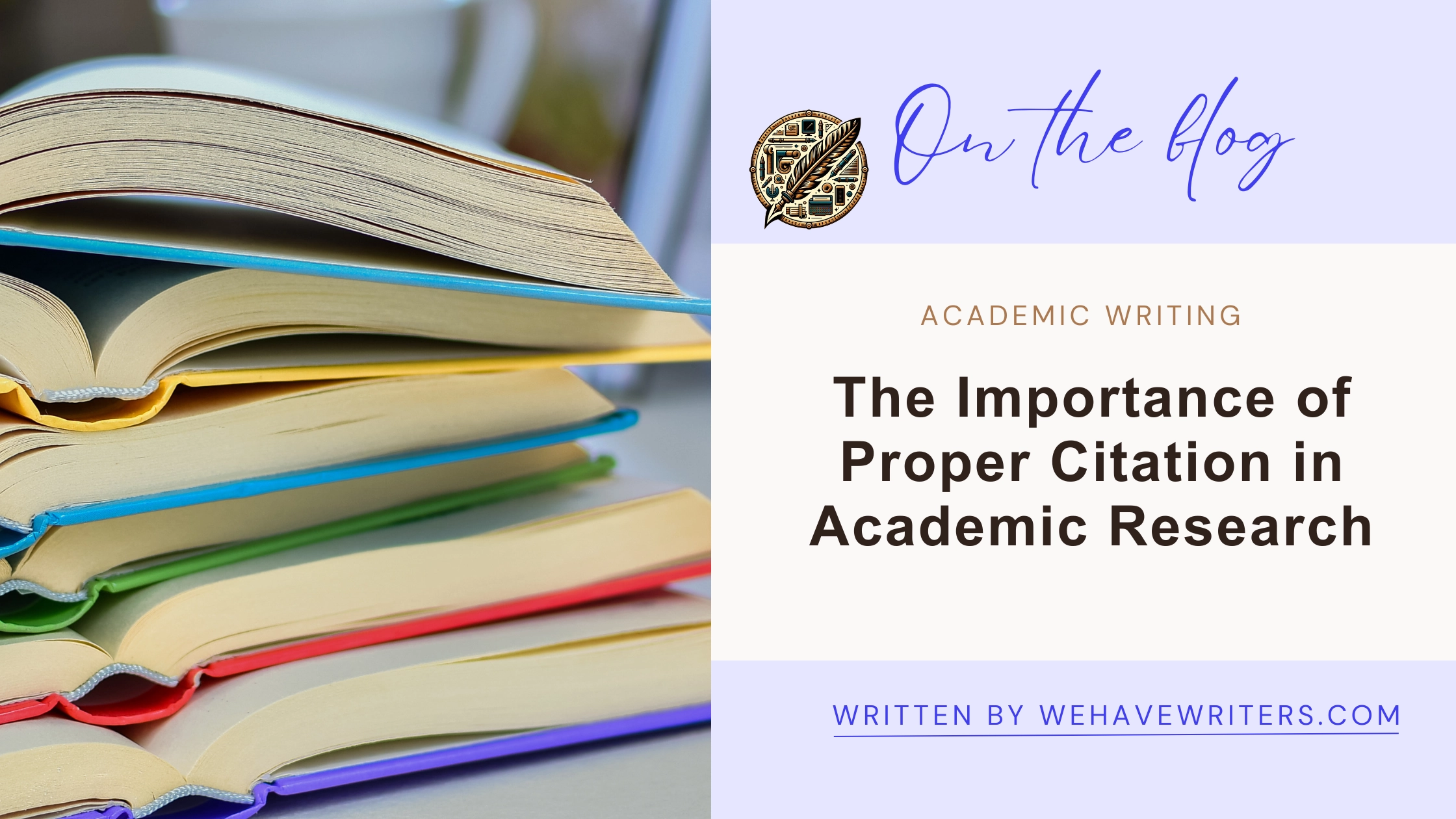
Introduction
In the realm of academic research, the importance of proper citation cannot be overstated. Citations are not just a formality; they are the backbone of academic integrity, providing a foundation for researchers to build upon the work of others while giving due credit. This article delves into the significance of citations, the consequences of improper use, and best practices for accurate referencing.
The Role of Citations in Academic Research
Citations serve multiple essential purposes in academic research. They allow researchers to acknowledge the contributions of others, prevent plagiarism, and provide readers with a roadmap to verify sources and further explore the topic. Proper citation upholds the standards of academic integrity and contributes to the reliability and credibility of research work.
Types of Citation Styles
There are several citation styles, each with its own set of rules and formats. The most commonly used are APA, MLA, and Chicago. APA is often used in psychology and sciences, MLA in humanities, and Chicago in business, history, and fine arts. Selecting the appropriate style depends on the discipline and the requirements of the academic institution or publication.
Consequences of Improper Citation
Failure to cite properly can lead to accusations of plagiarism, which can tarnish a researcher’s reputation and have legal ramifications. Plagiarism undermines the trustworthiness of research and can lead to academic and professional consequences. Ensuring accurate citation is crucial for maintaining ethical standards in research.
Best Practices for Accurate Citation
To ensure accurate citations, researchers should pay close attention to the details of their sources, including authors, titles, publication dates, and page numbers. It is crucial to be consistent with the chosen citation style throughout the research paper. Understanding the nuances of the selected citation style is key to avoiding errors.
Citation Management Tools
Citation management tools like Zotero, Mendeley, and EndNote can greatly assist in organizing and formatting citations. These tools help in keeping track of sources, generating bibliographies, and ensuring consistency in citation styles, thus simplifying the citation process and minimizing errors.
Citations and Academic Reputation
Proper citation directly impacts a researcher’s reputation. Accurate and ethical citation practices demonstrate professionalism and respect for the academic community. They reflect a researcher’s commitment to contributing to the body of knowledge in a responsible and ethical manner.
Challenges in Citation
Common challenges in citation include keeping track of numerous sources, understanding the subtleties of different citation styles, and correctly citing online sources. Staying organized, consulting style guides, and using citation management software can help overcome these challenges.
The Future of Citation in Research
The landscape of academic research and citation is continuously evolving with advancements in technology. The rise of digital resources has introduced new citation formats and practices. Staying informed about these changes is crucial for modern researchers.
Citation in Digital Research
Citing digital sources, such as online journals, e-books, and websites, poses unique challenges. It is important to include specific information like URLs and access dates. Adapting citation skills to effectively include digital sources is becoming increasingly important in contemporary research.
FAQs
Why is proper citation important in academic research?
Proper citation is crucial for acknowledging sources, avoiding plagiarism, lending credibility to your work, and allowing readers to verify and follow your research.
What are the most common citation styles?
The most common citation styles are APA (American Psychological Association), MLA (Modern Language Association), Chicago/Turabian, and Harvard referencing.
How can I avoid plagiarism in my research?
Avoid plagiarism by always crediting the original authors for their work, paraphrasing ideas with proper attribution, and using plagiarism detection tools to check your work.
What are the best tools for managing citations?
Popular tools for managing citations include Zotero, EndNote, Mendeley, and RefWorks, each offering unique features for organizing and formatting references.
How has digitalization impacted citation practices?
Digitalization has streamlined the citation process through automated citation tools, increased access to digital sources, and evolved the referencing of digital content like e-books and online journals.
Conclusion
Proper citation is a cornerstone of academic research, crucial for maintaining the integrity and credibility of scholarly work. By adhering to citation guidelines and employing best practices, researchers can contribute to their fields ethically and responsibly. Embracing the evolving nature of citation, especially in the digital age, is key to staying relevant and credible in the academic community.
